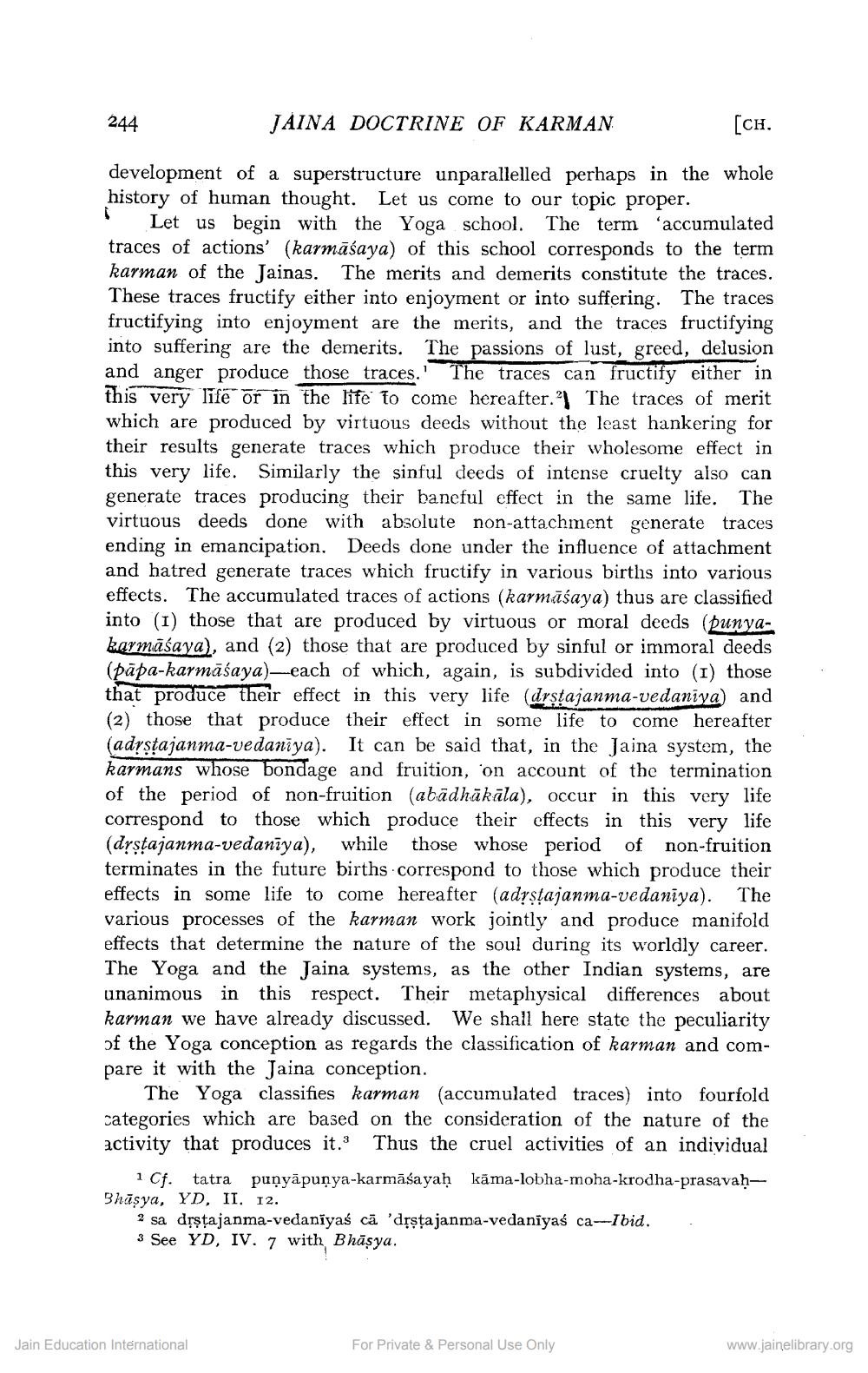________________
[CH.
JAINA DOCTRINE OF KARMAN
development of a superstructure unparallelled perhaps in the whole history of human thought. Let us come to our topic proper. 1 Let us begin with the Yoga school. The term 'accumulated traces of actions' (karmasaya) of this school corresponds to the term karman of the Jainas. The merits and demerits constitute the traces. These traces fructify either into enjoyment or into suffering. The traces fructifying into enjoyment are the merits, and the traces fructifying into suffering are the demerits. The passions of lust, greed, delusion and anger produce those traces." The traces can fructify either in this very life or in the life to come hereafter. The traces of merit which are produced by virtuous deeds without the least hankering for their results generate traces which produce their wholesome effect in this very life. Similarly the sinful deeds of intense cruelty also can generate traces producing their baneful effect in the same life. The virtuous deeds done with absolute non-attachment generate traces ending in emancipation. Deeds done under the influence of attachment and hatred generate traces which fructify in various births into various effects. The accumulated traces of actions (karmasaya) thus are classified into (1) those that are produced by virtuous or moral deeds (punyakarmasaya), and (2) those that are produced by sinful or immoral deeds (papa-karmāśaya)-each of which, again, is subdivided into (1) those that produce their effect in this very life (drṣṭajanma-vedaniya) and (2) those that produce their effect in some life to come hereafter (adṛṣṭajanma-vedaniya). It can be said that, in the Jaina system, the karmans whose bondage and fruition, on account of the termination of the period of non-fruition (abadhākāla), occur in this very life correspond to those which produce their effects in this very life (dṛṣṭajanma-vedaniya), while those whose period of non-fruition terminates in the future births correspond to those which produce their effects in some life to come hereafter (adṛṣṭajanma-vedaniya). The various processes of the karman work jointly and produce manifold effects that determine the nature of the soul during its worldly career. The Yoga and the Jaina systems, as the other Indian systems, are unanimous in this respect. Their metaphysical differences about karman we have already discussed. We shall here state the peculiarity of the Yoga conception as regards the classification of karman and compare it with the Jaina conception.
The Yoga classifies karman (accumulated traces) into fourfold categories which are based on the consideration of the nature of the activity that produces it.3 Thus the cruel activities of an individual
244
1 Cf. tatra punyapuṇya-karmāśayaḥ kāma-lobha-moha-krodha-prasavaḥBhāṣya, YD, II. 12.
2 sa dṛṣṭajanma-vedaniyaś ca 'dṛṣṭajanma-vedaniyaś ca-Ibid.
3 See YD, IV. 7 with Bhāṣya.
Jain Education International
For Private & Personal Use Only
www.jainelibrary.org




